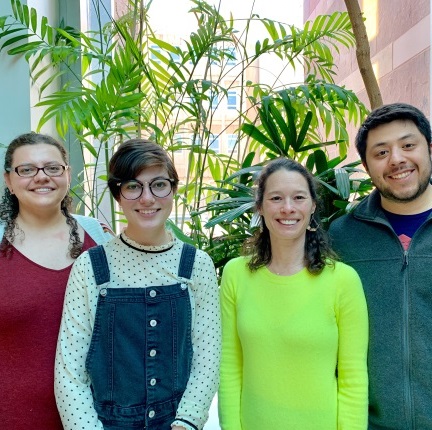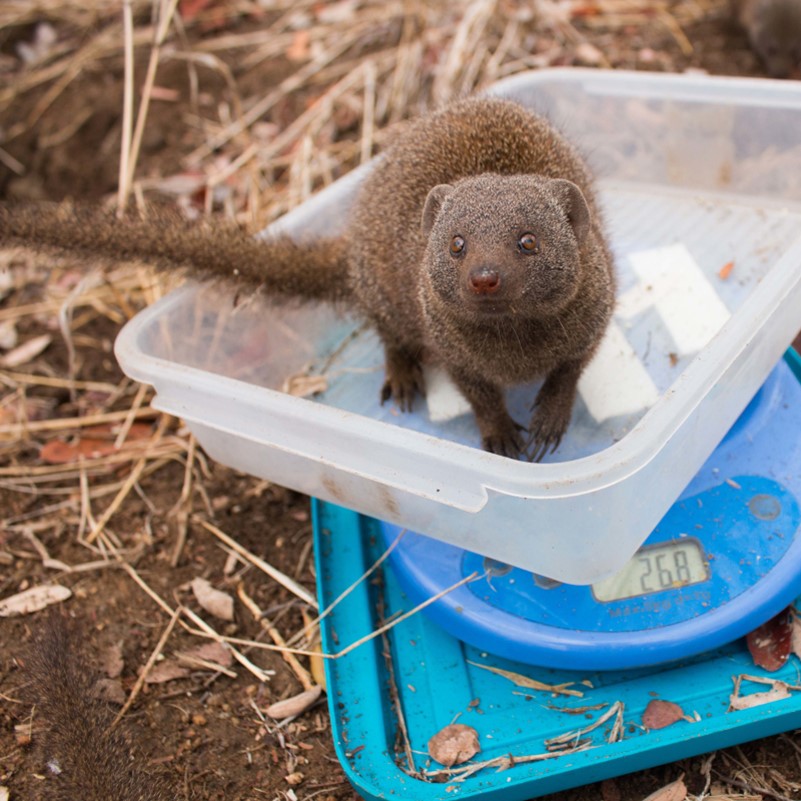In 2017, Proceedings B appointed our first Preprint Editor, Dr Maurine Neiman from the University of Iowa. We recently asked Dr. Neiman a few questions about preprints, her role as preprint editor and how things have been going.

In 2017, Proceedings B appointed our first Preprint Editor, Dr Maurine Neiman from the University of Iowa. We recently asked Dr. Neiman a few questions about preprints, her role as preprint editor and how things have been going.
How did you feel about the opportunity to be Preprint Editor?
I was the one with her hand up crying “Pick me!” when I heard that Proceedings B wanted one of their Associate Editors to take on a brand-new position as Preprint Editor. This opportunity – centered on soliciting submissions to Proceedings B from papers deposited in preprint servers – resonated for two reasons. First, I was increasingly focused on how science might be applied to enact positive change. Second, my leadership of a science writing course at the University of Iowa had pushed me to tackle the intersections between writing, publishing and reviewing practices, and equity-related issues like open access, paywalls, and author and reviewer anonymity. In fact, my students and I had already had productive discussions about the potential of preprints to increase the accessibility of science and to counter some of the challenges associated with peer review and publication.
How did you get started in your new position?
I began by asking Editor-in-Chief Professor Spencer Barrett and Publishing Editor Shalene Singh-Shepherd how to proceed in this new role, assuming that they had a specific process in mind. Instead, they responded with the exciting but somewhat intimidating suggestion that this process was up to me!
I began by thinking about goals: What did Proceedings B want to achieve with preprints? How could I leverage this position to make some progress towards my own desires to make the science publishing world more equitable and accessible? Proceedings B was hoping to use recruitment of submissions from preprint servers to increase disciplinary breadth, especially with respect to papers outside of the evolution, ecology, and organismal biology-focused research that often makes up the bulk of their submissions. The editors were also hoping to raise awareness of the journal across biology. On my end, I wanted to increase the visibility of preprints as a legitimate and effective means of making research accessible and as a mechanism to increase scholarly productivity.
I started by focusing on preprints posted in bioRχiv because I knew it had been modelled after aRχiv , which I knew as one of the original and most successful preprint servers. I also liked bioRχiv’s search settings, which provided options to search for papers within particular time frames and biological subdisciplines. The latter also mapped quite nicely onto Proceedings B’s disciplinary coverage, which extends into biomedicine, bioengineering and biophysics, psychology, and epidemiology.
How and why did you build your Preprint Editorial team?
Learning about Proceedings B’s disciplinary breath made me realise that I would need help to identify potentially appropriate papers in many of these subject areas. Thankfully, I had a fantastic resource right in front of me in the wonderful University of Iowa graduate and undergraduate students and postdocs in my courses, laboratory group and department. A student-based editorial team would also afford a wonderful opportunity to empower young scientists by providing a direct opportunity to interact with the science publishing process. I enlisted about 20 of these students and a new postdoc, drawing from expertise in biology and beyond, to serve on our brand-new Preprint Editorial team.
Together, we formulated our process: team members would be designated a particular subject area in bioRχiv that also fit within Proceedings B’s purview and scan through manuscripts submitted in that subject on a monthly basis. We gave promising papers a more careful look, reading abstracts and assessing the manuscript as a whole. Identifying information for appropriate papers was added to a Google sheet that all team members could access and edit. Along with my role as one of two evolution-focused team members, I also took on the responsibility of checking each of these prospective solicitations and making a final decision regarding whether to email the corresponding author to encourage a submission.
How did it go?
This team approach worked extremely well. Within a few months, we came up with a system that allowed us to efficiently survey hundreds of papers from across biology. A particularly important step forward came from then-undergraduate Jorge Moreno, who took on the challenge of writing a script that would draw from our spreadsheet to simultaneously send a personalised email to each of dozens of corresponding authors. We were especially concerned about the distinct possibility that our solicitation emails would be received as yet another spam message. We did our best to anticipate how to deal with this issue, ensuring that these emails featured correctly spelled last names and titles, and did not employ weird font changes. We also used monthly in-person meetings to discuss our process and most importantly, to suggest improvements.
I would love to know more about how scientists feel about getting one of our solicitation emails, which now number close to 1000. I am always a little nervous when I run the Jorge-scripted python code that sends out these emails, worrying that the authors might view my solicitation as spammy, pushy, or just unwelcome. My general sense is that our efforts are well received. I have received hundreds of positive responses since we began this project, ranging from simple “thank you for your interest” messages to the heartening “I hadn’t thought about Proceedings B until I received your email, and I think it could be a great fit” to encouraging words about our use of preprint servers. These responses also revealed another phenomenon: the vast majority of papers that we solicit for submission are already in review. What this meant is that many authors responded by saying that they would either consider Proceedings B if their paper was rejected or submit to Proceedings B in the future. This information also provided a good explanation for our unanimous perspective that the papers posted on bioRχiv are almost always of very high quality with respect to formatting, structure, and visual elements.
Are we meeting our goals?
The feedback from preprint authors as well as on social media and in person suggests that we are accomplishing our goals of raising awareness of Proceedings B, especially amongst researchers who might not think to submit to our journal. I also think that we’re making a good case for preprint servers as a mechanism of making science more widely accessible and increasing scholarly productivity. It is not yet clear whether we are accomplishing our more concrete goal of increasing the breadth of papers submitted to Proceedings B. About 30 or so papers have been submitted following solicitation, with about 20% of these papers accepted. Several of these papers are from subdisciplines like biophysics with very little representation in Proceedings B, but most of the submissions have still been from ecology and evolution.
I am especially proud of our accomplishments with respect to the junior scientists that make up the Preprint Editorial Team. These 20 or so people are doing a tremendous job as team members while receiving a unique and hands-on chance to be directly involved in science publishing. In part 2 of our preprints blog – find out more about the Preprint Editorial team members.
Proceedings B is looking to publish more high-quality research articles and reviews across biology. If you have an idea for a review, we strongly encourage you to submit a proposal by completing our proposal template and sending it to the journal.
Image credit:
From left to right: Robin Bagley, Beth Osia, Maurine Neiman and Jorge Moreno – University of Iowa.



